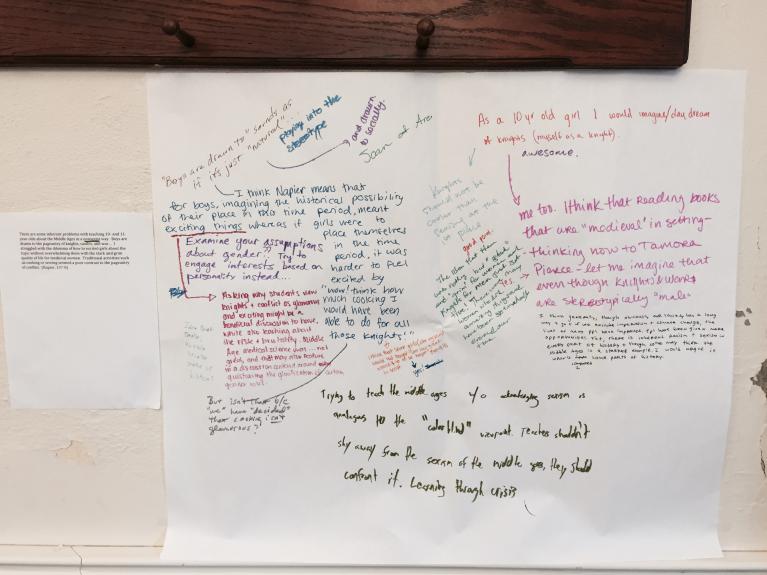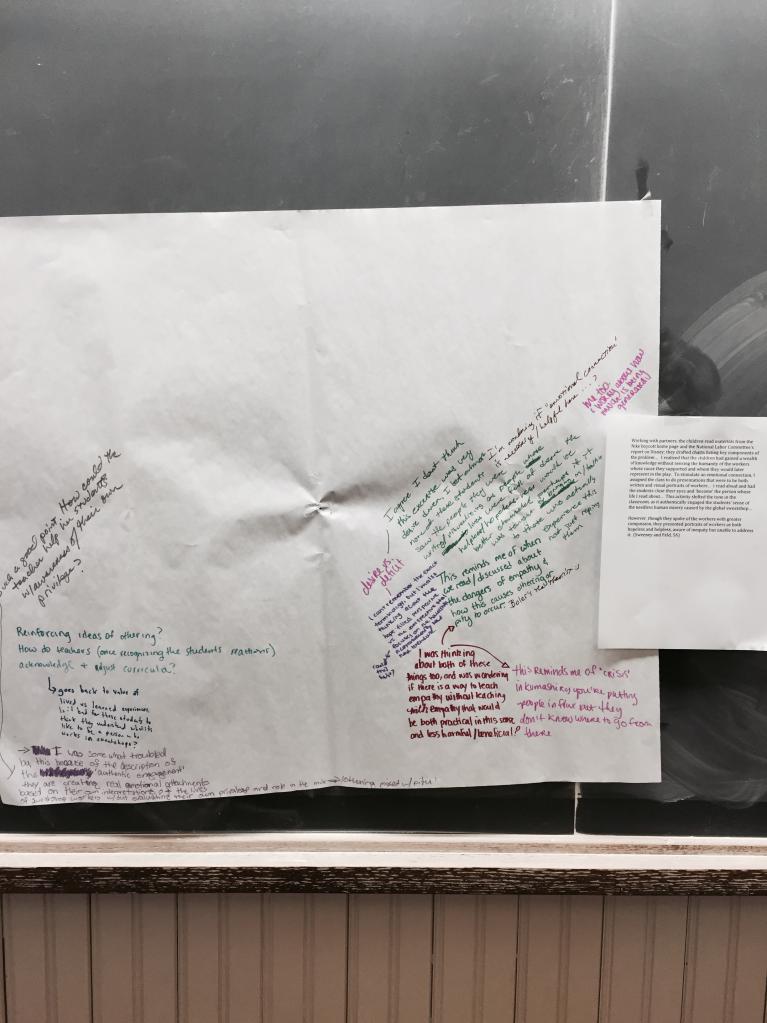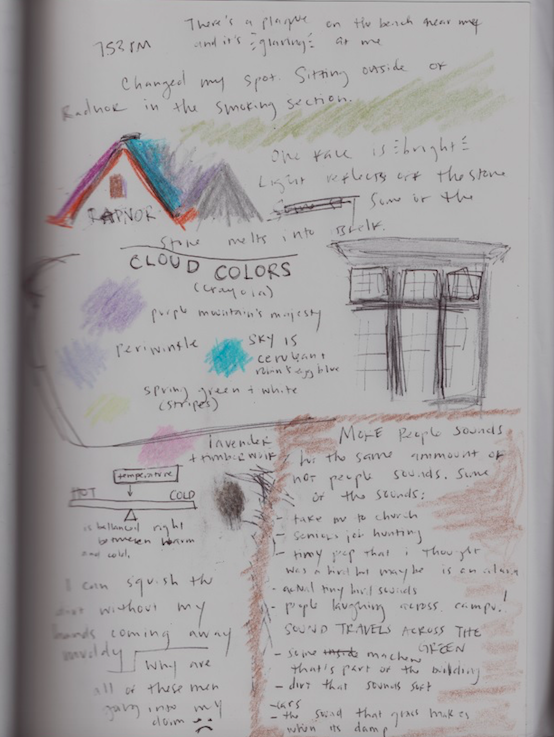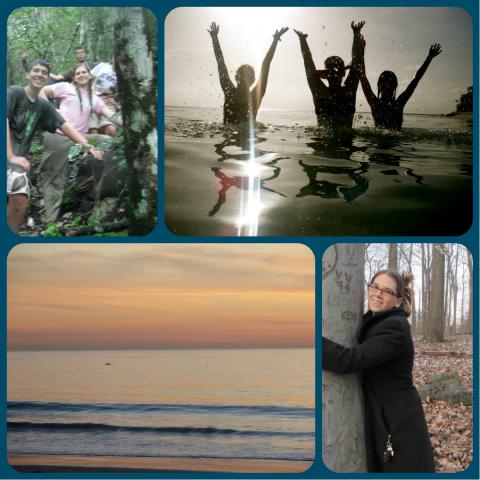Shrine to Chronic Social Indigestion
By caleb.eckertMarch 28, 2015 - 16:52





Serendip is an independent site partnering with faculty at multiple colleges and universities around the world. Happy exploring!





In McKilip et. al.'s "Rules of Engagement: Building a College-Going Culture in an Urban School." I was impressed by the school's sense of an almost familial culture. As one 12th grader said of her advistory board, "You sit down and you have a conversation, like you're having a conversation at the dinner table." (p. 538). This attitude seems not only be a part of the students' existence at the school, but also the teachers'.







It called out to me.
Hey there. You look a little tired. Isn't that backpack a little too heavy. Sit. Relax. Breathe.
How? I don't know.
It looked like a bench, but it felt more like a sturdy hammock. a sturdy hammock with pillows.
SPRING?? More like ~soft winter~
What is that? Why is it so quiet? Is that the buzz of a generator? Is it the buzz of the street lamp? Do the clouds make sounds as they move across the sky? Is that a car door slamming? Where is the car? Why is it so quiet, still.
That jacket looks familiar. I know her. Joy. I thought she left. She was back. Bye.
My stomach hurts. What did I eat. Was it those stuffed shells? Am I lactose intolerant? I don't think so. Maybe I just have to pee.

Introduction
The purpose of this observational exercise was to determine the frequency of various types of action observed from a specific location on Bryn Mawr’s campus. The location used was the Sunken Garden during a twenty-five minute block of time on a Thursday afternoon.
Methods and Materials
The action was classified according to walkers and joggers, couples passing, vehicles passing, large gusts of wind, trains, sunbreaks and falling branches. To record these occurrences the observer kept a pen and paper upon which she made two columns and recorded the number of each of these events.
Data
Walkers and Joggers*: 9
Couples†: 3
Vehicles‡: 9
Large gusts of wind§: 6

You opened your mouth to let it in. "Be careful," I told you, "Don't fall." You shrugged and continued climbing. "Watch your step," I told you, "It's wet." You told me to stop pestering. You said that it didn't matter that the rain was cold against your bare back. That you probably could have dressed better for the weather and just because it was warm in the afternoon didn't mean it would stay warm forever. But that it didn't matter. You said you loved the way the rain fell from the sky and hit the ground. And how it reminded you of that one time you flipped a bowl of sunflower seeds onto your lap. You said you love the rain. You said it makes you happy.



I found the chapter from Sleeter to be particularly interesting, especially in light of our recent barometer activity where we had a pretty intense and divided discussion about the idea of learning "basics." This reading made me question even further what those basics truly are and how they may in fact differ amongst individuals and groups of people. The concept of transformative knowledge provides a place for "non-traditional" knowledge to be explored and questioned in meaningful ways. I think this relates directly to conversations about learning the basics and therefore questioning the basics. Who decides what knowledge is canonical/basic/vital?

Looking back at my other site sit postings, I’ve realized I haven’t talked genuinely about my experience at my site sit. I think that I, like much of the class, subconsciously edit my experience (even as it’s happening) because I have an agenda at my site by the duck pond. I hope to experience something (think, imagine, sing, write, nap), and then translate and edit it into a posting. Moving forward, I don’t want to be editing my experience as its happening, and just let it happen. Anne said she’s bored with the site sit postings--to be honest I’ve been bored of writing them.


tank top and shorts
bare feet
messy wet hair
warm skin
my comfort space
filled with sand
sometimes mud
always close to earth
just feet from the concrete